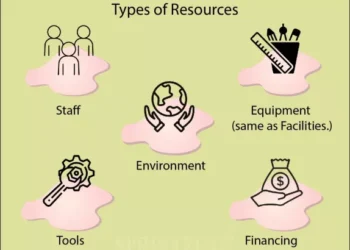This question harks back to a significant moment in American history, encapsulating a sentiment that has influenced the nation’s economic policies and cultural identity for nearly a century. This famous phrase was uttered by Calvin Coolidge, the 30th President of the United States, in a speech delivered to the Society of American Newspaper Editors in 1925. Coolidge’s assertion reflects a core belief in the American ethos, emphasizing the importance of business and commerce as the driving forces behind the nation’s prosperity and progress. Calvin Coolidge’s presidency came during the Roaring Twenties, a period marked by significant economic growth and widespread consumerism. His statement, “The business of America is business,” succinctly captured the spirit of the age, highlighting the role of private enterprise and free markets in fostering economic development. This phrase has since become a touchstone for discussions on American capitalism, often cited in debates about the balance between government regulation and free enterprise.
Understanding the context and implications of Coolidge’s statement provides valuable insights into American economic philosophy. It underscores the nation’s enduring commitment to entrepreneurship and the belief that business activity is a vital component of national strength. This article will delve into the origins of this iconic phrase, its historical significance, and its lasting impact on American economic thought.
The Origins of “The Business of America is Business”
Calvin Coolidge’s tenure as the President of the United States was marked by a staunch advocacy for business and economic growth. His famous quote, “The business of America is business,” was delivered during a speech to the Society of American Newspaper Editors on January 17, 1925. This phrase was not just a simple remark but a reflection of Coolidge’s deep-seated belief in the power of business and free enterprise.
Coolidge assumed office during a period of unprecedented economic expansion known as the Roaring Twenties. This era saw rapid industrial growth, technological advancements, and a booming stock market. Coolidge’s policies were largely pro-business, advocating for limited government intervention in the economy and lower taxes. He believed that the prosperity of America was intrinsically linked to the success of its businesses.
The context in which Coolidge made his statement is crucial to understanding its significance. The 1920s were characterized by a strong emphasis on consumerism and the growth of mass production. Companies like Ford and General Electric became household names, symbolizing the rise of American industry. Coolidge’s administration supported this growth by maintaining a laissez-faire approach, which allowed businesses to thrive with minimal regulatory oversight.
However, Coolidge’s assertion also faced criticism. Some argued that an overemphasis on business could lead to neglect of social issues and economic inequalities. The Great Depression, which followed the Roaring Twenties, highlighted some of these concerns, as the unregulated growth and speculative investments contributed to the economic collapse.
In essence, Coolidge’s quote, “The business of America is business,” encapsulates the spirit of an era that valued economic growth and innovation. It also serves as a reminder of the complexities and potential pitfalls of prioritizing business interests above all else.
Impact on American Economic Policy
Pro-Business Policies
Calvin Coolidge’s presidency is often remembered for its pro-business stance. His administration implemented policies that favored economic expansion and reduced government intervention. This approach included significant tax cuts, which were intended to spur investment and growth.
Legacy of Laissez-Faire Economics
Coolidge’s belief in limited government intervention laid the groundwork for the laissez-faire economic policies that dominated much of the 20th century. This philosophy emphasized minimal regulation and a free-market economy, encouraging entrepreneurship and innovation.
Influence on Subsequent Administrations
The pro-business ethos of Coolidge’s administration influenced subsequent presidents and policymakers. The idea that a thriving business sector is essential for national prosperity continued to shape American economic policies well into the modern era.
Criticism and Challenges
Despite its positive impact on economic growth, Coolidge’s approach also faced criticism. The lack of regulatory oversight during the Roaring Twenties contributed to economic disparities and the eventual onset of the Great Depression. Critics argue that a balanced approach, considering both business interests and social welfare, is essential.
Modern Relevance
Coolidge’s statement remains relevant today as debates about the role of government in regulating business continue. The balance between promoting economic growth and ensuring social equity is a persistent theme in American economic discourse.
The Cultural and Social Milieu of the 1920s
- The 1920s were marked by significant cultural and social changes in the United States. This period saw the rise of consumerism, with Americans increasingly buying automobiles, radios, and household appliances. The widespread availability of credit made it easier for people to purchase these goods, further fueling economic growth.
- The decade also witnessed significant advancements in technology and industry. The automobile industry, led by companies like Ford and General Motors, revolutionized transportation and created new economic opportunities. The radio became a popular medium for entertainment and news, connecting Americans in ways never before possible.
- In addition to technological advancements, the 1920s were characterized by a cultural renaissance. The Harlem Renaissance, a cultural movement centered in New York City, celebrated African American culture and produced influential works of literature, music, and art. Jazz music, in particular, became synonymous with the decade, with artists like Louis Armstrong and Duke Ellington gaining national prominence.
- The economic prosperity of the 1920s also had a profound impact on American society. The stock market boomed, and many Americans invested in stocks, hoping to capitalize on the economic growth. However, this period of prosperity was also marked by economic disparities, with wealth concentrated among a small segment of the population.
- Despite the economic and cultural advancements, the 1920s also saw social tensions. The period was marked by significant immigration, leading to cultural clashes and the rise of nativist sentiments. The resurgence of the Ku Klux Klan and the implementation of restrictive immigration laws reflected the social and racial tensions of the time.
- Overall, the 1920s were a complex and transformative period in American history. The phrase “The business of America is business” captures the economic optimism of the era, but it also serves as a reminder of the challenges and limitations of unfettered capitalism.
The Lasting Legacy of “The Business of America is Business”
The Influence on American Economic Policies: The phrase “The business of America is business” has had a lasting impact on American economic policies. It encapsulates a belief in the importance of a thriving business sector for national prosperity. This philosophy has influenced various administrations and their approaches to economic policy.
The Debate on Government Intervention: Coolidge’s quote continues to be referenced in debates about the role of government in the economy. Proponents of limited government intervention argue that a free-market economy is essential for innovation and growth. Critics, however, emphasize the need for regulation to address economic disparities and protect public welfare.
Reflections on Modern Business Practices: The principles embodied in Coolidge’s quote are reflected in modern business practices. Companies prioritize innovation, efficiency, and competitiveness to thrive in a global economy. The quote serves as a reminder of the enduring significance of business in American society.
Cultural and Historical Significance: “The business of America is business” is more than just an economic statement; it reflects a cultural and historical ethos. It captures the spirit of the 1920s, a period of economic optimism and transformation. The quote remains a part of the American cultural lexicon, symbolizing the country’s entrepreneurial spirit.
Lessons for the Future: While the quote emphasizes the importance of business, it also offers lessons for the future. The Great Depression highlighted the limitations of unfettered capitalism and the need for a balanced approach to economic policy. As we navigate modern economic challenges, the quote serves as a reminder of the importance of both innovation and regulation.
Conclusion
The phrase “The business of America is business” encapsulates a significant period in American history and reflects an enduring economic philosophy. Attributed to President Calvin Coolidge, this quote highlights the importance of a thriving business sector for national prosperity. Understanding the context and implications of this quote offers valuable insights into American economic policies and societal values. As we look to the future, the quote serves as a reminder of the need for a balanced approach to economic growth and regulation.
FAQ’s
Q. Who said, “The business of America is business”?
A. President Calvin Coolidge said this during a speech to the American Society of Newspaper Editors in 1925.
Q. What does “The business of America is business” mean?
A. The quote emphasizes the importance of business and economic growth as central to American prosperity and national success.
Q. What was the historical context of Coolidge’s quote?
A. The quote was made during the 1920s, a period of significant economic growth and industrial advancement in the United States, known as the “Roaring Twenties.”







